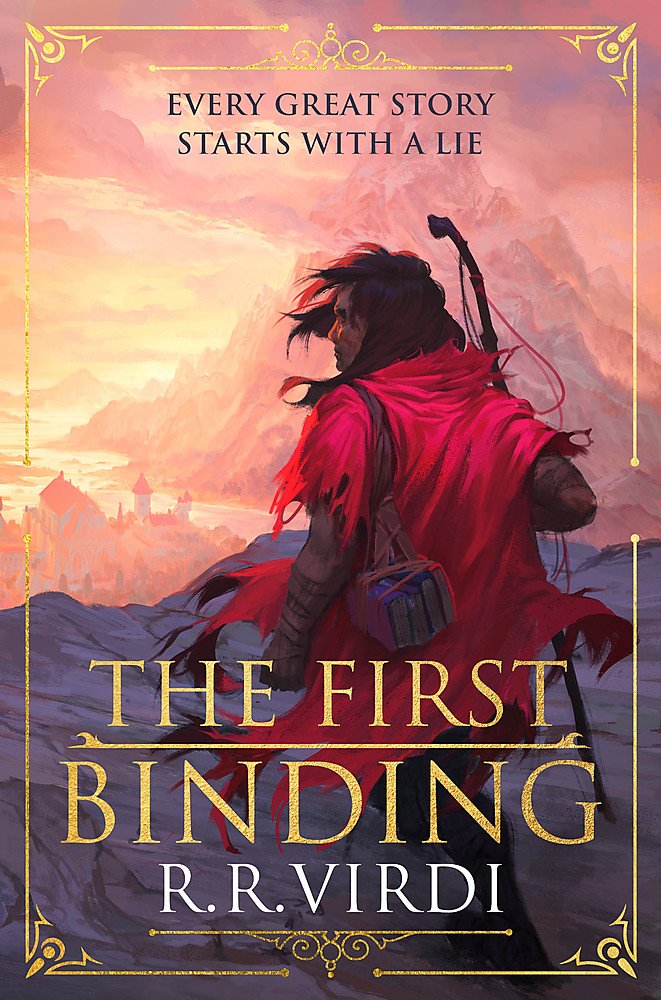I once stumbled across a video about reading habits for those with short attention spans. In order to combat his lack of focus, the creator devised a plan. He would read several books at once on rotation. With five books on the hop, he’d read one chapter from the first book, then move on to the next. He’d read a chapter from that one, then move on to the next, ad infinitum.
As a fun project, I thought I would test the process.
Without further ado, here are the five books I am currently reading — and my thoughts so far. It has to be noted that every book below has me hooked.
DRAGONFALL
by L.R. Lam
In a nutshell: dragons hate humans. Humans worship dragons as Gods. A dragon princeling - the last male of the species - inadvertently bonds with a human magician. They both secretly need to kill the other, but need to use each other, first — and one cannot hurt the other without hurting themselves. Angst ensues.
The world building is solid and is not confusing, and although there is intended romance, the plot and the politics are the forefront. There is LGBTQ+ representation.
This book is for fans of a fast-paced, low-stakes fantasy with all of the tropes (enemies-to-lovers, anyone?).
THE FERRYMAN
by Justin Cronin
The Ferryman is an incredibly clever novel that could comfortably drift between the literary fiction section and the science fiction section.
In a nutshell: Proctor works as a Ferryman on an island touted as utopia. Those who live on the island are recycled humans; at the end of their life, they are ferried to a smaller, nearby island to have their memory wiped so that they can be made young again, and re-introduced to society as wards. Everything is not as it seems, however, and Proctor finds himself caught up in the conspiracy.
This book is for the philosophers — for those who like a ‘thinky’ novel. There are themes of class injustice, of family dynamics, and possibly the meaning of life. How would you feel if you knew reincarnation was a certainty?
THE BOOK THAT WOULDN’T BURN
by Mark Lawrence
How does that saying go? A riddle, wrapped in a mystery, inside an enigma. That’s what it feels like going into Mark Lawrence’s The Book that Wouldn’t Burn. This does not do the book a disservice, though.
We follow two main characters - Evar and Livira - whose experiences read like entirely different stories. Evar has been imprisoned in an ancient, massive, magic library his whole life and Livira has lived a meager existence in the dust, outside in the open. Their stories start completely separate but slowly intertwine.
The world is unlike any I’ve read before, and the characters are so well-sketched you just want to keep reading. For those who love books about books and high fantasy.
IN THE LIVES OF PUPPETS
by TJ Klune
I am a TJ Klune fangirl and devour anything that he writes. In the Lives of Puppets is a loose Pinocchio retelling set in a future where humans have almost completely been replaced by AI. The main character, human Victor, is raised by one such machine, and in turn rescues and repairs other machines. Until he rescues Hap — a robot that shares a history with Victor’s caregiver, and who inadvertently throws their quiet lives into chaos.
This is classic TJ Klune. It is cosy fantasy at its finest with found family at its core. He puts a new spin on the discussion around artificial intelligence and humanness — something I think we all need to consider in the very near future.
CITY OF LAST CHANCES
by Adrian Tchaikovsky
If you’re like me, you know Adrian Tchaikovsky for his heavy science fiction novels. City of Last Chances is a new fantasy novel, and it is… epic, is all I can really say.
The book reads a lot like its cover suggests; it’s a little chaotic, but if you have patience and forge on, you will easily find rhythm in the chaos. Give it a few chapters and you’ll find your groove.
The city itself is a main character, and though threaded with many, many points of view — it works. It gives the impression of a city about to implode. There’s revolution. The city is at war with itself — as well as the magical land on the other side of the Anchorwood.
This book is for those who love political high fantasy.













































